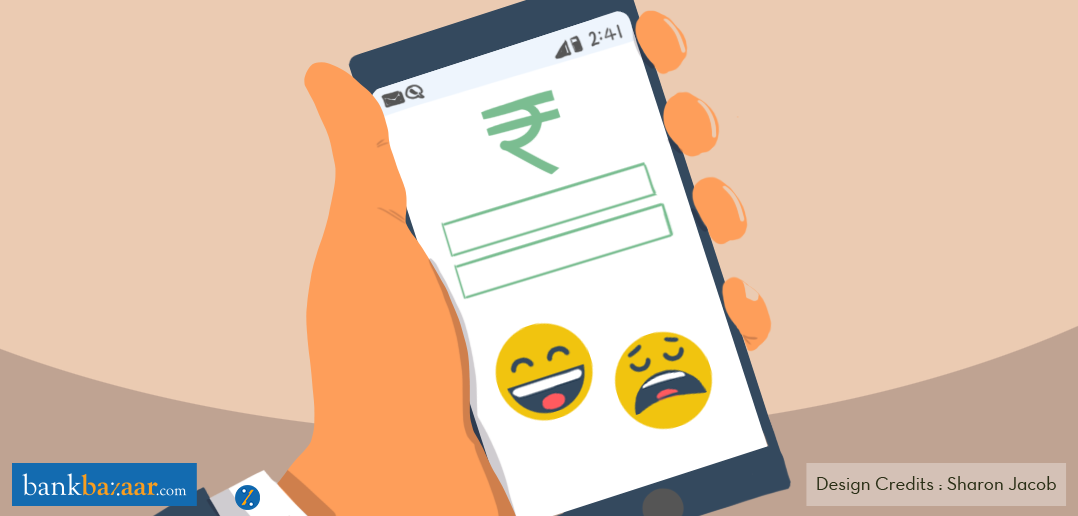There’s no denying that internet banking is here to stay. However, as with everything in life, it has its pros and cons. Read on to know more about both sides of the internet banking coin.

Online banking has become the accepted norm for monetary transactions for millions in India over the past decade. The ease with which one can check their account, make payments online and transfer money between accounts has made this mode of banking hugely popular. This is especially true for Indians who are perpetually short of time to visit the bank physically.
Online banking also provides a host of non-transactional features which are quite handy. However, even with the level of convenience it provides, this method of banking has a few inherent pitfalls. These need to be understood in order to protect your money and avoid complications subsequently.
Key Benefits of Internet Banking
There are plenty of perks offered to customers who adopt internet banking over the traditional visit to the branch office.
Convenience
This is the single most important benefit that outweighs any shortcoming that internet banking may have. Making transactions and payments right from the comfort of your home or office at the click of a button is a facility none would like to forego. Keeping a track of your accounts through the internet is much faster and convenient as compared to going to the bank for the same. Even non-transactional facilities like ordering chequebooks online, updating accounts, enquiring about interest rates of various financial products etc. are much simpler on the internet.
Better Rates
The banks stand to gain significantly through the use of internet banking as it implies lesser physical effort from their end. The need to acquire larger spaces for offices and employ more staff to deal with the customers is significantly reduced. This makes it financially beneficial to the banks. Also, a portion of savings accrued can be passed on to the customers in terms of higher rates on deposits and lower rates on loans. To encourage internet banking most banks offer minimum or no deposit accounts for online banking. They also charge lower penalties on early withdrawal of Fixed Deposits.
Services
Technology has made it extremely convenient for the bank as well as the customer to access a host of wonderful services online. These services include financial planning capabilities, functional budgeting and forecasting tools, loan calculators, investment analysis tools and equity trading platforms. These are available as simple applications on the bank’s website. Additionally, most banks also provide the facility of online tax forms and tax preparation.
Additional Reading: Online Banking 101
Mobility
Internet banking has gone a step further in the last few years in the form of mobile internet banking. This accords unlimited mobility for you, the customer, who can now handle financial transactions even while on the move.
Another important benefit of internet banking is that it is good for the environment. It cuts down the usage of paper and reduces pollution as people do not have to travel physically and also does not add emissions.
Additional Reading: Why Online Banking Is Your ‘Friend With Benefits’
Drawbacks of Internet Banking
However, the current trend of exclusively using the online mode has a few pitfalls. This may prove costly in the long run unless guarded against from the beginning.
Relationships
Online transactions take a toll on the relationship with the banker which the traditional visit to the branch office used to foster. Personal relationships with the staff at the banks come in handy when requesting faster loan approvals or a special service which may no longer be available to the public. The manager has many discretionary powers. These include waiving penal interest or service fees. Additionally, personal contact also meant that the banker would provide essential financial advice and insights which are beneficial to the customer.
Complex Transactions
There are many complex transactions which cannot be sorted out unless there is a face to face discussion with the manager. This is not possible through internet banking. Solving specific issues and complaints requires a physical visit to the bank and cannot be achieved through the internet. Online communication is neither clear nor specific enough to help resolve many complex service issues. Certain services such as notarisation and bank signature guarantees cannot be accomplished online.
Security
This is the biggest pitfall of the internet banking scheme which needs to be guarded against by you. Despite the host of sophisticated encryption software designed to protect your account, there is always the possibility of hacking by criminal elements in the cyber world.
Hacker attacks, phishing, malware and other unauthorised activity are not uncommon on the net. Identity theft is yet another area of grave concern if you rely exclusively on internet banking. Most banks have made it mandatory to display scanned copies of cleared checks online to prevent identity theft. It is essential that you check the bank’s security policies and protections while opening an account and before commencing the usage of online banking facilities.
Additional Reading: 11 Tips To Scam-Proof Your Online Transactions
Online banking is definitely a significant move in the right direction as far as the convenience of the customer as well as the banker is concerned. But it must be applied with adequate precaution to avoid falling prey to unscrupulous elements scouring the internet.